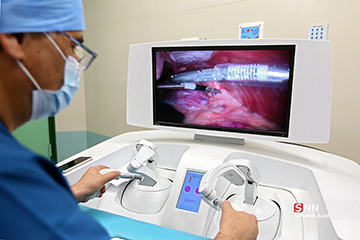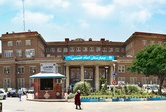Medical technologies
Using the latest treatment technologies

The ERCP technique combines endoscopic and fluoroscopic methods, which are used not only for treatment but also for diagnosing various conditions related to the liver, gallbladder, bile ducts, and pancreas. This technique can provide excellent images of abnormalities in the pancreatic and gallbladder ducts, and it has the capability to perform necessary treatments for many anomalies during imaging.
Conditions that can be diagnosed and treated with ERCP include:
• Obstruction or stones in the bile ducts
• Disorders of the bile ducts or pancreas
• Obstruction or narrowing of the pancreatic ducts
• Tumors and cancers of the pancreas
• Infections in the bile ducts
• Pancreatic stones
• Closure of the bile and pancreatic ducts
It is worth mentioning that the use of ERCP is not limited to the aforementioned cases. In some instances, physicians utilize the ERCP technique to determine the cause of unexplained abdominal pain or jaundice.
Risks and Side Effects of ERCP
• Inflammation of the pancreas or gallbladder
• Infection
• Bleeding
• Risk of perforation of the small intestine, esophagus, or stomach
• Accumulation of bile outside the biliary system
انتخاب حالت کور رنگی
سرخ کوری سبز کوری آبی کوری سرخ دشوار بینی سبز دشوار بینی آبی دشوار بینی تک رنگ بینی تک رنگ بینی مخروطیتغییر اندازه فونت:
تغییر فاصله بین کلمات:
تغییر فاصله بین خطوط:
تغییر نوع موس:

